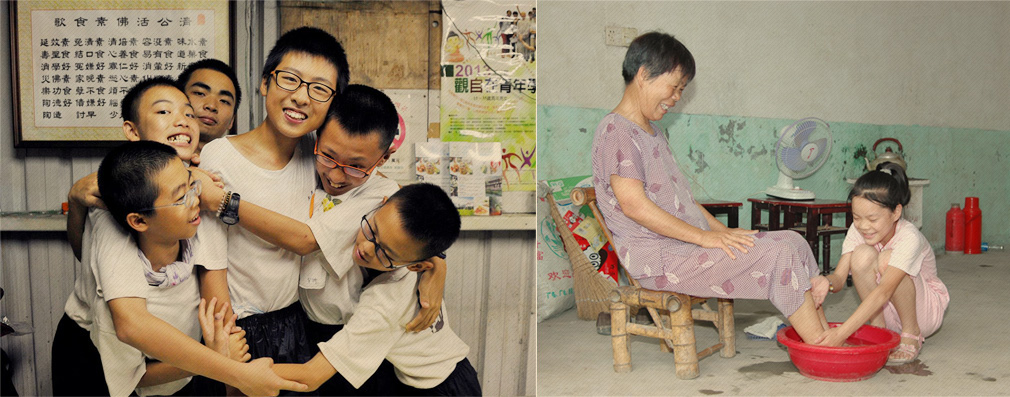

Loving and honouring parents is the origin of Chinese culture. Respectfulness is the foundation of Chinese culture. Traditional Chinese culture can be summarised into four aspects: the Five Cardinal Relationships, the Five Constant Virtues, the Four Anchors, and the Eight Virtues.
The Five Cardinal Relationships refers to the loving relationship between parent and child, loyalty and fairness between leader and subordinate, distinct responsibilities between husband and wife, proper order between senior and junior, and trust between friends. The Five Cardinal Relationships is the Way, the order of nature. The first of the Five Cardinal Relationships is the loving relationship between parent and child. This is the root of Chinese culture and the objective of education is to maintain such love and extend it towards all beings.
The Five Constant Virtues are moral virtues, which encompass benevolence, honor, propriety, wisdom, and trustworthiness.
The Four Anchors are propriety, honor, integrity, and shame. They were promoted by the great statesman, thinker and educator Guan Zhong as the theories and methods for governing society and the nation.
Originating from the Qin and Han periods, the Eight Virtues refer to loving and honouring parents, love among siblings, loyalty, trustworthiness, benevolence, love, harmony, and peace.
The Five Cardinal Relationships, the Five Constant Virtues, the Four Anchors, and the Eight Virtues constitute the four pillars of traditional Chinese culture. They represent universal truths and wisdom that has transcended time and space.
In ancient China, everyone had to accord with these standards of conduct regardless of, whether or not one was literate, or whether one was a scholar or a farmer, an artisan or a merchant, man or woman, young or old. Since time immemorial, every generation has learned and practised such principles from an early age. The Chinese are therefore an ethnicity based on morality, ethics, and virtue.
